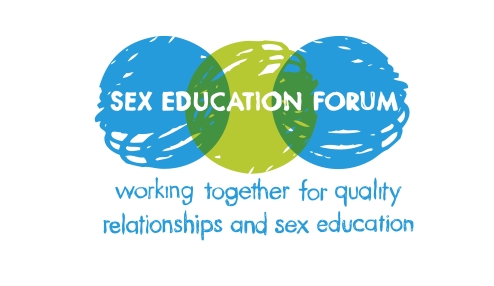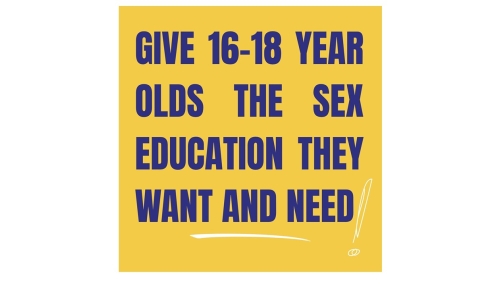In 2017 RSHE was made mandatory with overwhelming cross party support. The statutory guidance was informed by research evidence and shaped by extensive consultation with expert groups and was supported by 538 MPs and organisations across the youth, health and education sectors. In contrast, the conversation around RSHE in 2023 has been dominated by myths and misinformation, often from a small but vocal group of people who oppose many aspects of RSE, especially LGBT+ inclusive RSE. These commentators have repeatedly claimed that the RSE being taught to our children is ‘taking away their innocence’ and is harmful. But is there any truth to these claims?
MYTH 1: RSE spoils children’s innocence
FACT: A well-planned RSE curriculum is a protective tool for children’s safety. Knowing which parts of the body are private, understanding the difference between appropriate and inappropriate behaviour, including online, and having the confidence to ask for help are essential to give every child the power to recognize abusive or harmful behaviour and to be heard. Sadly, children who are ignorant about things like correct terms for body parts and rules about touch are especially vulnerable and can even be targeted by abusers.
Because RSHE is now mandatory, hundreds of thousands of children are now learning that ‘my body is my own’, and will be better placed to call out abuse and get help fast.
MYTH 2: RSE provides too much information too soon
FACT: Children and young people routinely report their RSE lessons as being ‘too little, too late’ this includes not learning about puberty until after the onset of menstruation amongst some primary age children; in secondary school not learning about safer sex and healthy romantic relationships until after many of their year group have become sexually active; or not having an opportunity to share their concerns about pornography until years after they have been exposed to it.
A good quality RSE curriculum should provide information that is timely and prepares young people in advance for future challenges; is responsive to young people’s questions, but is developmentally appropriate and takes account of the diverse experience and understanding within a year group.
There is no evidence that RSE encourages young people to become sexually active. The evidence tells us that RSE helps delay onset of sexual activity, reduce the age-gap between partners at first sex and increase the likelihood of safer sex practices.
MYTH 3: RSE lessons introduce children to the idea of being LGBT+
FACT: We are all living in a society that includes LGBT+ people and enshrines their equality in law. RSE lessons should be inclusive of all protected characteristics, and reflect the anti-discriminatory ethos and equalities duties expected of every school.
It is not possible to teach a child to be LGBT+ but it is possible to ensure that every child feels that their family is respected and to learn about families that are different to their own.
To keep children safe it is necessary that children learn that sexist, homophobic, bi-phobic and transphobic discrimination and bullying are wrong.
Young people nationwide expect RSHE which recognises LGBT+ people in our communities and is inclusive of and relevant to LGBT+ young people in schools.
MYTH 4: External organisations are controlling what is taught in RSE lessons at school
FACT: When planning their RSHE curriculum teachers can draw on a wide range of resources and expert organisations to support their RSHE planning and teaching. Sex Education Forum guidance sets out that schools need a clear process for choosing to use external visitors e.g. how the external input will add value to their curriculum, whether their work draws on reliable sources of information and the robustness of their safeguarding practice. Teachers who are trained and confident rely less on external visitors and have more capacity to select the most appropriate resources or organisations to complement their work.
Young people often appreciate having some lessons delivered by outsiders who offer a different style of teaching, may bring specific subject knowledge that teachers lack, or connection to local young people’s services. However, they also want their teachers to be trained, confident and less embarrassed to teach RSHE.
MYTH 5: What is being taught in RSE lessons is being hidden from parents
FACT: The RSHE guidance requires schools to share their RSE policy and curriculum information with parents and carers. As a result there have been thousands of communications about RSE shared with families since 2019. Most parents and carers understand that no two RSE lessons will be identical, as children will ask different questions and will have different levels of knowledge before the lesson begins. However, they are reassured when they understand the overall plan for the curriculum, and when to expect RSE lessons to take place. This involvement needs to continue, in part because it helps parents take a greater role in providing RSE at home too.
Parents are largely supportive of RSE and want schools to address the complex issues facing their children and young people.
MYTH 6: Teachers are imposing their own beliefs through RSE
FACT: All teachers must comply with the Teachers Standards, which are a strict set of rules about how teachers’ must behave throughout school life. Because RSHE became mandatory without an adequate training programme to upskill teachers, many teachers report that they lack confidence with areas of RSE. There are other subjects on the curriculum, like religious education, in which pupils learn about a range of beliefs and perspectives, with teachers skillfully facilitating discussion and not imposing their own views.
The same high expectations around teacher competency and skills will lead to better quality and consistency in RSE.
MYTH 7: Parents are the most reliable source of RSHE for their children
FACT: Most parents and carers want to be a key source of RSHE information for their children alongside schools. However, in reality around 1 in 4 young people report that they received no RSE from their parents at all. Often, young people say that they would like their parents to be more involved in their RSE than they are in reality. Families can help to embed key values that will support their children to have healthy relationships throughout their lives, for example: kindness, self respect, responsibility, sharing, helping others and more. When school and home work together to provide RSE the benefits for children and young people are greatest.
Much abuse takes place within the family home so we cannot assume that it is always a safe place to ask questions relating to sex or sexuality; or that we can rely on all parents to support their children with vital RSHE education.
MYTH 8: Relationships and Sex Education should be a major cause of concern
FACT: despite worrying reports there is no evidence that there is a widespread problem with RSE. Recent adverse reports have sometimes been found to be exaggerated or even invented. Where there are problems they are largely attributable to the inexperience of untrained teachers not to any malicious intent.
There is no room for complacency. There has been scant investment in training or support for teachers; and the delayed roll out of RSHE as a mandatory topic due to Covid has resulted in slower progress than hoped. However we are seeing schools striving for improvement, and pockets of excellent practice.
The only way to ensure consistent, high quality delivery of RSHE will be to invest in initial teacher training and continuing professional development, and to treat RSHE as the complex and specialist subject it is.
MYTH 9: The RSHE guidance is not fit for purpose
FACT: The 2019 RSHE guidance (updated 2020) was informed by research evidence and shaped by a robust process of consultation with expert organisations across health, education, safeguarding and faith communities. The vast majority of MPs voted for the guidance and it was supported by a huge consensus of organisations across children and young people’s sectors. To date the implementation and roll out of statutory RSHE (delayed by Covid) has not been evaluated. Research commissioned by the DfE to support teaching about sexual harassment and sexual violence in schools is still to be published. We do have feedback from a poll of 1000 young people (SEF, 2023) that some of the mandatory RSHE topics are not yet being taught, so there is clearly further to go to see through the implementation.
Most schools find the guidance to be a useful basis for planning RSHE, and find it gives flexibility to shape their curriculum to the needs of their students. The plan was always to update the guidance every few years and this review is a welcome opportunity to make some improvements that build on the existing framework. Any improvements to the RSHE guidance should be made through consultation with teachers, children and young people.
Further information
- This myth buster was developed by Sex Education Forum in collaboration with Brook.
- 'RSE - the evidence' (Sex Education Forum, 2022) provides an accessible summary of the research evidence on RSE
- For more support with delivering high quality RSE and involving parents, carers and the wider school community explore our training calendar and become a member.




Share